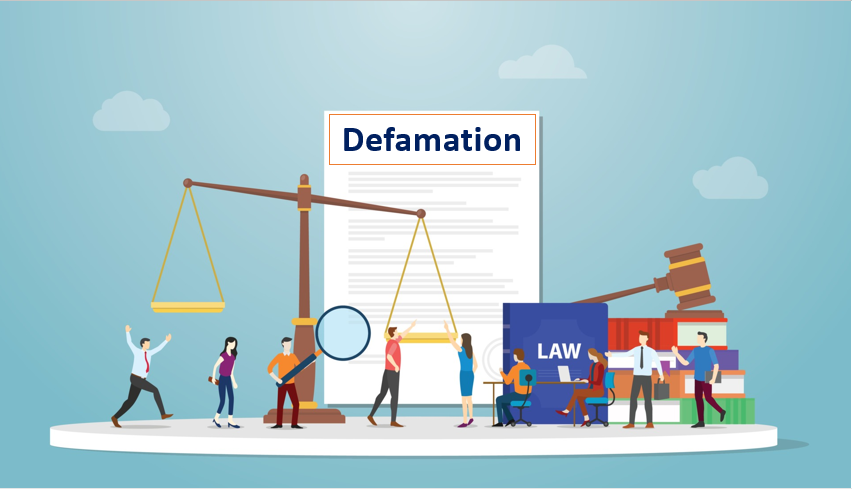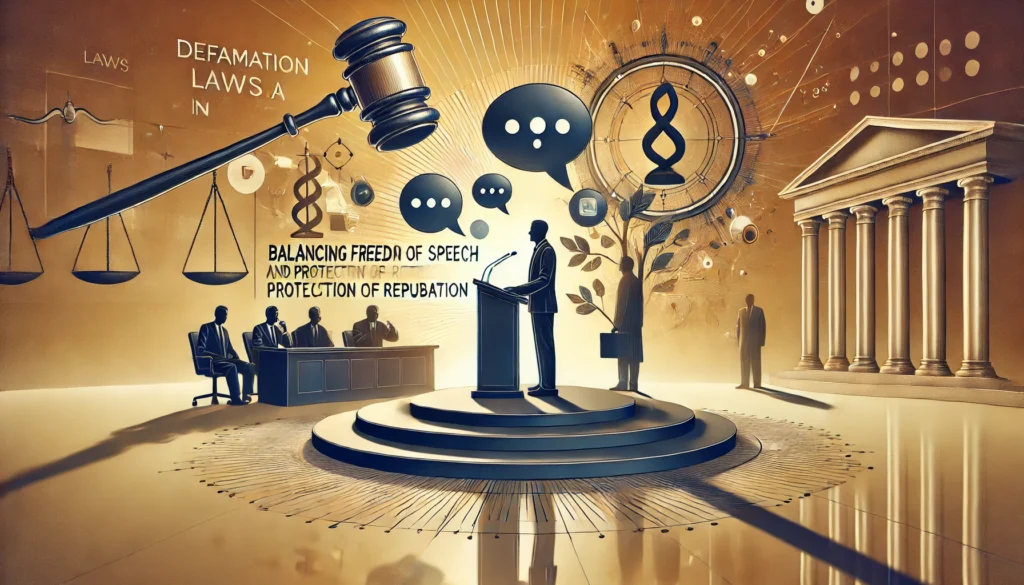
Introduction
A legal term known as defamation refers to the spreading of untrue information that damages the reputation of a person, organization, or company. Defamation is also defined under Section 499 of Indian Penal Code, 1860. The Indian Penal Code, 1860 Section 500 lays out the punishments for defamation. Understanding defamation and how it might affect your personal and professional life is essential in today’s connected world where information spreads quickly. This page seeks to thoroughly review defamation, including its varieties, the laws governing it, and the steps you can take to safeguard your reputation.
What exactly is defamation?
A false statement made about another party that harms the reputation of the person or company being spoken about is referred to as defamation. It can take many different forms, including verbal statements (slander) and written claims (libel). A victim of defamation may suffer serious repercussions, including harm to their personal and professional lives.
Types of Defamation:
1. Libel
Written or printed defamatory statements are referred to as libel. This includes claims made in articles published online, in print publications, blogs, social media posts, or in any other written form of communication. Generally speaking, libel is more harmful because it has a greater scope and is permanent.
2. Slander
Conversely, slander entails making false claims out loud. It includes insulting statements through speeches, interviews, broadcasts, conversations, and other oral communication. Unlike libel, slander is typically more temporary and may have a limited audience.
Elements for Defamation:
A defamation claim requires the following components to be present:
1. False Claims
The assertion must be untrue. Defamation charges are always successfully defended by the truth. If the statement is factually accurate, it cannot be considered defamatory.
2. Publishing
A third party must be informed of the fraudulent statement. Having ideas or privately expressing them is not considered defamation. The statement must be made public in some way.
3. Reputational Damage
The reputation of the subject of the fraudulent statement must be damaged. This harm may take many forms, such as ruined personal or professional ties, lost employment chances, or monetary losses.
Defending against Defamation Claims
Several strategies can be used to defend defamation claims:
1. Truth
If the claim stated is accurate, it acts as a complete defamation defense. No matter how hurtful, remarks that are true cannot be deemed defamatory.
2. Privilege
Legal privilege protects certain words. For instance, statements made in court or by government agents working in the course of their official duties may be exempt from defamation lawsuits.
3. Opinion
Opinions are typically protected by free speech rights. However, it is crucial to distinguish between opinions and false statements presented as facts.
Legal Considerations in Defamation Cases:
Several legal factors are taken into account while handling defamation issues, including:
1. Burden of Proof
The burden of proof in defamation proceedings often falls on the plaintiff. They must show that the defendant’s fabricated claims hurt their reputation.
2. Public Figures and Defamation
The burden of proof is higher for public figures like politicians or celebrities in defamation lawsuits. They need to demonstrate that the false statements were made with “actual malice”—either knowing they were untrue or disregarding the truth—in order for them to be upheld.
3. Defamation and the Internet
The prevalence of online defamation claims has increased with the growth of social media and online platforms. Online defamation can spread rapidly and have far-reaching consequences, requiring special considerations in legal proceedings.
How to Guard Your Reputation?
To safeguard your reputation from defamation, consider the following steps:
1. Monitor Your Online Presence
Regularly monitor your online presence to identify any defamatory statements made about you. Set up Google Alerts or make use of reputation management tools to stay informed.
2. Responding to Defamatory Statements
It can be difficult to respond to false claims. To choose the best course of action, it is advisable to speak with an attorney. In some cases, a cease and desist letter may be sufficient, while in others, legal action may be necessary.
3. Legal Remedies
If you have been a victim of defamation, you can pursue legal remedies to protect your reputation and seek compensation for the harm caused. Consult with a knowledgeable defamation lawyer who can help you through the legal process.
Conclusion
Defamation can have serious repercussions for both people and companies. In today’s digital world, it is crucial to comprehend the fundamentals of defamation, the legal landscape surrounding it, and the procedures to defend your reputation. Proactively pursuing legal action will help you protect your reputation and lessen the potential harm that defamatory claims may create.

